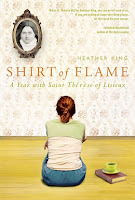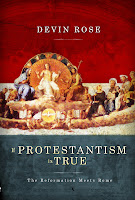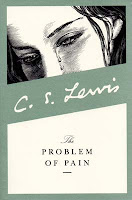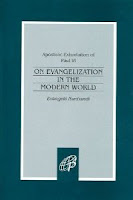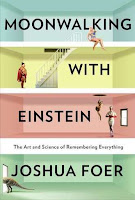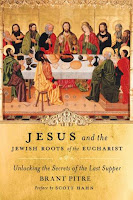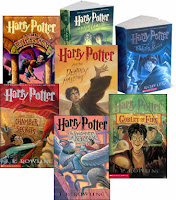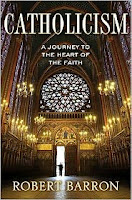*If you missed them, here were my favorite books from 2010*
Anyone who reads this blog knows that I’m a bibliophile. I love books and devour as many as I can. Last year I finished 108 books, and while I didn’t quite crack that many in 2011, I came pretty close. The final tally will have me finishing more than 85 titles, including more than 21,000 pages. It can be difficult to choose your favorites when you read that many books, but alas, I’ve narrowed them down to my top fifteen books from 2011.
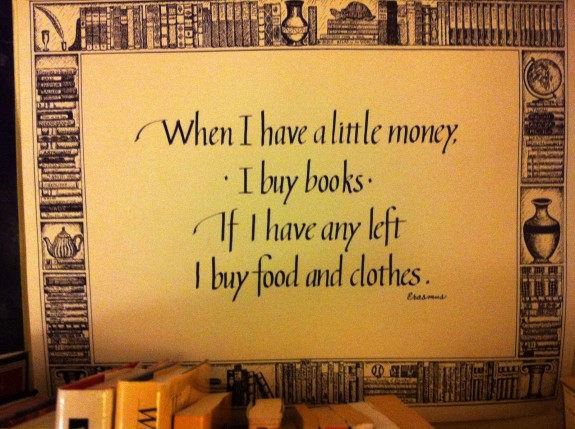
To be clear, these are my fifteen favorite books. They’re not necessarily the most acclaimed, the most timeless, or the best-written. They’re simply the ones that I liked the most. But if you need a subjective measuring stick, these are the books that I keep thinking about well after finishing them. They continue to pop into mind and linger for weeks.
Only about half of the books were published in 2011. But as C.S. Lewis would say, a book’s newness isn’t always an advantage. In fact, novelty can be a disadvantage, since newer books haven’t been tested by time. In any case, the older books may be new to you, so that’s all that matters.
With all of that said, here are my favorites from 2011 (in descending order):
15. Verbum Domini (The Word of the Lord)
by Pope Benedict XVI
One critique I hear from a lot of non-Catholics is that the Catholic Church ignores Scripture. Well many of those qualms should be put to rest with this apostolic letter from the Pope, the result of an October 2008 synod of bishops. Pope Benedict XVI writes brilliantly on the Church’s love and subservience to the Word of the Lord, which includes the Bible, but isn’t limited to it. He’s careful to draw the distinction between the two, explaining that the Word of God is much more than a book–it’s the person of Jesus Christ.
The letter also includes a great section on the liturgy, noting how the Mass is the central home of the Word. The Pope also offers some practical ways to engage the Bible. He’s particularly high on lectio divina, a contemplative mode of spiritual reading.
If you want a good summary of what the Catholic Church teaches about the Word of God, there’s no better source than this.
(Verbum Domini is about 180 pages long in book form, so I think that’s the easiest way to read it. But you can also find it for free online in text, PDF, or Word format. The latter format, of course, is supremely ironic.)
14. A Man of the Beatitudes: Pier Giorgio Frassati
by Luciana Frassati
(My Review)
A good chunk of my “Year with Pier-Giorgio Frassati” took place in 2011, and this was the best book I read on him. Not only was it written by his sister, Luciana, which makes it a very personal biography, but the chapters are also interestingly themed by the beatitudes. When Pope John Paul II made Pier-Giorgio a “Blessed” back in 1990, he called him a “man of the beatitudes”. I think he was spot on. This is what I said in my earlier review:
“Pier Giorgio was meek, he was a peacemaker, he was poor in spirit, he hungered and thirsted for righteousness, and he embodied all the rest of the beatitudes. The core of Jesus’s most famous sermon was the core of Pier Giorgio’s entire life. That’s why he’s a saint. And that’s why his life is so attractive.”
If you don’t know much about this young saint, this book provides a wonderful introduction.
13. Shirt of Flame: A Year With St. Therese of Lisieux
by Heather King
In addition to spending time with Pier-Giorgio Frassati, I also dwelled with another saint who died at the young age of 24–St. Therese of Lisieux. St. Therese is such an odd saint. She didn’t start a religious order, she didn’t run a hospital, and at her death she was known by maybe a few dozen people. But her powerful autobiography, The Story of a Soul, made her popularity explode. I remember reading somewhere that outside of the Bible, Story of a Soul was the best-selling religious book of the twentieth century.
Well it turns out I wasn’t the only one to spend a year with this spiritual master. Talented writer Heather King did the same, and her new book Shirt of Flame is her resulting memoir.
One reason I love this book is because Heather and Therese are so similar. They write with the same raw authenticity and share a spirituality centered on grace and “small things”. One reviewer described Heather’s writings as “the grit of sanctity.” I think you could say the same of Therese, too. King really captures the simple holiness of Therese’s “Little Way” and shows how it can be lived in the modern world.
During my own year, I read a number of other Therese biographies by writers like Joseph Schmidt, Kathryn Harris, and even Dorothy Day, but Heather’s book was my favorite. It’s more of a spiritual biography that goes beyond mere facts and dates and it really draws you into the soul of St. Therese. Heather’s approach draws you close, right to the level of spiritual friendship. For the deep spiritual communion this book yields, I highly recommend it.
12. If Protestantism Is True
by Devin Rose
(My Review)
Devin Rose is really smart, but better than that he’s kind. And that’s on full display in his new book, If Protestantism Is True. The book is an example of charitable apologetics–defending the faith with love as much as truth. It certainly covers controversial issues, but it does so without resorting to caustic rhetoric.
The resulting book is unique defense of Catholicism. It’s different from many other books on apologetics in that it doesn’t really seek to prove that Catholicism is true. Instead, it pokes holes in several core Protestant beliefs.
Devin’s main tool is reductio ad absurdum, which extends a certain belief to it’s natural conclusion. When the conclusion is shown to be absurd, the original belief must be rejected.
So for instance, Devin uses the example of the canon of Scripture (the list of the book in the Bible.) Most Protestants and Catholics agree on the 27 books that make up the New Testament. Yet Protestants don’t believe in the authority of the Catholic Church. However, if the Church has no authority, then it had no authority back in the fourth century to decide which books made up the New Testament. This would mean that Protestants, who typically ground their faith solely on the Bible, would not know for sure which books made up the New Testament–a perilous problem, indeed.
Throughout the rest of the book, Devin uses other examples to show that Protestantism can’t possibly be true, all in a cool, collected manner free of angry polemics.
11. Evangelization for the Third Millennium
by Avery Cardinal Dulles
Over the past year, I’ve done a ton of reading on the New Evangelization. From Popes Paul VI, John Paul II, and Benedict XVI to experts like Fr. John McCloskey, Peter Williamson, and Ralph Martin, I’ve read widely and deeply on the topic.
In my reading, this book stands as the best volume on the topic. Dulles was a brilliant thinker–some argue he was America’s greatest theologian–and here he’s at his best. He synthesizes the official teachings of the Church on evangelization, especially Evangelii Nuntiandi (see blow) and Redemptoris Missio, as well as current trends and best practices from around the Church. It’s comprehensive yet short (144 pages), intelligent yet accessible.
For a primer on the New Evangelization, and a guide to evangelizing yourself, there’s no better book.
10. The Problem of Pain
by C.S. Lewis
(My Review)
According to St. Thomas Aquinas, there are really only two objections to Christianity. One is that everything in the world can be explained without God, so He’s not needed. That objection doesn’t so much disprove God as it suggests that He isn’t necessary.
The second objection is more serious. It’s also the objection most prevalent among atheists today. Often called “the problem of evil“, this one says that if God is all-powerful and all-loving, how can evil possibly exist? Since there clearly is evil in the world, then God must not be who we think He is; He’s either not all-powerful or not all-loving.
Gallons of ink have been spilled in response to this problem, but I think Lewis’ Problem of Pain is the best reply. With care and gentleness, he walks through each of the premises in the so-called problem, spending most of his time developing a proper definition for each term. I explain that more in my review:
“God’s goodness, according to Lewis, doesn’t mean “niceness” in the modern sense. It doesn’t mean that God’s ultimate goal is for us to be carefree and comfortable. God, Lewis reminds, is “our father who art in heaven,” not “our grandfather who art in heaven.” Which means he sometimes refines us, allowing challenges that eventually benefit us and bring us to fuller life. God does this not in spite of his goodness, but precisely because of it.”
If you’ve ever felt despair over evil in the world, or have ever asked God, “how could you let this happen to me?!” then this book will provide some guidance.
9. Evangelii Nuntiandi (On Evangelization in the Modern World)
by Pope Paul VI
From now on, if anybody ever says to me, “Evangelization? Catholics don’t do that, it’s a Protestant thing!” I’m going to smack them in the face with this book. It is the single best source of official Catholic teaching on evangelization that shows how central it is to our faith.
Now most Catholics remember Pope Paul VI for his controversial encyclical, Humanae Vitae, which reaffirmed Catholic teaching on contraception and sexuality. Unfortunately, Evangelii Nunitandi is often lost in the shadows. And that’s a serious shame.
One could argue that this in today’s post-Christian world, this is the most important Church document in recent history. According to Pope Benedict XVI, we’re facing an unprecedented “dictatorship of relativism”, which is buoyed by a rejection of all things religious. His proclamation of a “Year of Faith” in the face of militant atheism, and his establishment of the Pontifical Council for Promoting the New Evangelization are both signs that our world’s greatest need is for man to encounter Christ–for the first time or once again.
Evangelii Nunitandi is a manifesto for the New Evangelization, a gameplan for reaching the world, and I think it should be required reading for all Catholics.
8. How the Catholic Church Built Western Civilization
by Thomas Woods
Most people, including most atheists and agnostics, recognize the Church’s contributions to art and music and architecture. For the most part, that’s clear and indisputable. But scholar Thomas Woods argues that her influence goes much further than that. His bold proclamation, as the title of his book suggests, is that the Catholic Church built Western civilization.
At first I thought that claim was a bit hyperbolic, maybe even triumphalist. Yet after reading the book I now wholeheartedly agree. Sure, other groups and institutions contributed to the development of Western culture, but at the end of the day, Western civilization as we know it would not exist without Catholicism. Quite simply, nothing else has shaped it more than the two-thousand-year-old Catholic Church.
In the book, Woods offers many examples to support this claim. For one, modern hospitals and charitable structures emerged from the Catholic Church. She’s also responsible for several things we take for granted like free-market economics, universities, and Western law, which all stem from Catholicism. Scientific fields like optics, geology, astronomy, and modern cosmology were fathered by religious academics set on discovering God’s design.
Interestingly, one of the most important contributions is the grounding of philosophy on reason and logic. The Catholic Church is often accused of anti-intellectualism by non-believers, yet she actually paved the way for the Enlightenment and the Scientific Revolution. These systems of rationalism owe their very existence to medieval scholars like St. Thomas Aquinas and St. Bonaventure.
If someone ever tells you that Catholicism is “the greatest evil in the world“, just hand them this book.
7. The War of Art
by Steven Pressfield
Writing is really hard. If you’ve tried to write seriously or consistently, you know exactly what I mean. And I’m not even referring to difficulties with diction and syntax and grammar. I mean the inertia that hangs like a cloud whenever you stare at a blank screen.
Steven Pressfield, a veteran conqueror of blank screens himself, has written a no-holds barred gameplan for defeating this internal opposition, which he calls Resistance. His advice is valuable for writers, but can really apply to anyone creating anything: writers, painters, designers, musicians, and even engineers like me.
With a sharp, blunt style that reminds me of Seth Godin, Pressfield advocates for true professionalism among creatives. If you want to be a good writer, he suggests, your only job is to show up, sit down at your computer every day and just write. Don’t listen to the voice that says, “I don’t have anything to write about” or the one that claims, “I just don’t feel the creative juices flowing.” If you tune-out that Resistance and slog forward, you’ll find that the creativity will come. The only way to win your inner creative battles is to fight vigorously with discipline–wisdom that holds true in the spiritual realm, as well.
The War of Art is short and lively and a real kick-in-the-pants. And I think it’s a modern classic. Many of my favorite authors say it’s their favorite book on writing, and one of them actually re-reads it twice each year. I’d recommend the book to any writer or creative, but Pressfield’s advice can be applied to almost every area of life.
6. A People of Hope
by Archbishop Timothy Dolan and John Allen Jr.
(My Review)
If you aren’t familiar with Archbishop Timothy Dolan, you will be soon. In just a handful of months he was named Archbishop of New York, the most prominent diocese in America; he was selected by Pope Benedict XVI to be on the Pontifical Council for Promoting the New Evangelization; and just this year he was elected President of the U.S. Conference of Catholic Bishops. According to veteran Church reporter John Allen Jr., Dolan is set to become the most influential Catholic in American history and will be the face of American Catholicism for the next decade or more.
In my mind, that’s a wonderful thing. Dolan is precisely the right person to represent the Church. He’s warm, he’s charismatic, he’s funny, and he’s a very dynamic speaker. All of these traits are on display in A People of Hope, a book-length interview between Dolan and Allen. The book isn’t a traditional biography, as I explain in my review:
“A People of Hope is less “about” Dolan and more “with” Dolan. The book’s give-and-take style lets Dolan speak for himself and this is precisely where he shines. His captivating rhetoric is equal parts Lincoln, Kennedy, and Martin Luther King, Jr. and is so electric that you feel he could easily be a politician if he wasn’t a bishop.”
I highly recommend this fascinating look at the most important leader of the American Catholic Church. To see what Dolan is all about, read this book.
5. An Ocean Full of Angels
by Peter Kreeft
(My Review)
Dr. Peter Kreeft is pretty well-known in the Catholic world. He’s written more than 60 books on theology, apologetics, and philosophy and was a big influence on many Catholic converts (including this one). But with An Ocean Full of Angels, he attempts something completely different–a novel.
How would you describe this book? Well in the words of its publisher, An Ocean Full of Angels is “the damnedest novel you’ll ever read.” How’s that for a description? Even better than that, here’s Kreeft’s own summary:
“An Ocean Full of Angels is an angel’s-eye view of the connections between Jesus Christ, Muhammad, dead Vikings, sassy Black feminists, Dutch Calvinist seminarians, very large Mother-substitutes, armless nature-mystics, Caribbean rubber dancers, the Wandering Jew, angels in disguise, three popes in one year, Cortez, Romeo and Juliet, the sea serpent, our Lady of Guadalupe, the demon Hurricano, islam in the art of body surfing, the universal fate wave theory, the Palestinian intifadah, the fatal beauty of the sea, dreams of Jungian archetypes, the dooms of the Boston Red Sox, the abortion wars, the Great Blizzard of ’78, the wisdom of the ‘handicapped,’ the ecumenical jihad, the psychology of suicide, and the end of the world.
But that’s an oversimplification.”
This book is strange, but at the same time it’s incredibly beautiful. It’s disorganized yet memorable, jilted yet lyrical. While it’s not your typical Kreeft book, it does contain many of his favorite themes: the brilliance of C.S. Lewis, the ocean’s enchantment, the strength of logic, and the force of the culture war. It has that haunting quality–much like the stories of Flannery O’Conner–which ensures that after you finish, you won’t soon forget it. For that alone, it’s a worthy read.
4. Moonwalking With Einstein: The Art and Science of Remembering Everything
by Joshua Foer
Joshua Foer was a normal science reporter, who one day was sent to the World Memory Championships for a story. But when he got there, he was blown away. He saw guys memorizing two decks of playing cards in just a couple minutes; others recited thousands of random digits in sequence; more were memorizing hundreds of lines of poetry they had heard just five minutes before.
Shocked by these feats, Foer wondered what made them possible. Yet no matter where he turned it seemed that these men were no different than you or me. Their brains were average size, they had no physical or mental abnormalities, and if you met them in a restraunt you would never guess they were world-class memory champions.
And the competitors admitted as much. They told Joshua that anyone, in fact, could do what they do with a minimal amount of practice. Foer was skeptical, but he decided to call their bluff. One of the men agreed to take him under his wing, and for one year he’d tutor Foer in the “art and science of remembering everything.”
Foer’s book is a memoir of all that he learned and experienced during that year and it’s completely captivating. One reason why is that Foer is a fantastic story teller. He writes in the mold of Malcolm Gladwell, using plenty of off-the-wall anecdotes and many obscure connections (in what other book will you find the real-life Rain Man compared to Japanese chicken sex-selectors?)
Along with recounting his own journey, Foer gives a general history of “memory” stemming back to great orators like Cicero and Quintilian and even to saints like Augustine and Aquinas. He reveals the powerful tools that memory-experts have used through the centuries to recall lists and speeches, backward or forward.
Moonwalking with Einstein ends with a bang as Foer finds himself in the U.S. Memory Championships after just a year of practice. I won’t spoil the ending, but I will say that Moonwalking with Einstein may be the most fascinating book on this list. I’ve definitely mentioned it in more conversations than any other title and enthusiastically recommend it.
3. Jesus and Jewish Roots of the Eucharist
by Dr. Brant Pitre
I thought I had a pretty good understanding of the Eucharist, but that was until I read this book. I knew the Biblical passages that mentioned this sacrament–specifically Matthew 26, John 6, and 1 Corinthians 11–but looking back, I was only scratching the surface. Dr. Brant Pitre, a rising theologian who studied under Dr. Scott Hahn, uses his rich background in Jewish culture to show how the Eucharist was not just a first-century innovation. It actually has roots deep in the Jewish faith and was foreshadowed for centuries.
Dr. Pitre explores three specific items that point to the Eucharist: the ancient Jewish Passover meal, the miraculous Manna from heaven, and the oft-forgotten Bread of the Presence. Through history and theology, he shows how these three keys unlock the full meaning of the Eucharist.
He also reveals the clear connections between the Passover meal, the Eucharist, and the Crucifixion. For instance, Dr. Pitre explains that in the Passover meal, there were four cups that were part of the ritual. Drinking the fourth cup signified that the meal was over and the sacrifice had been completed. But when Jesus celebrates his final Passover meal the night before his death, he only drinks three. After just three cups, his disciples get up and leave the table.
The next day, hanging on the Cross, Jesus utters those cryptic words: “I thirst.” In response a couople men lift up some sour wine. Jesus sips it then says, “It is finished.”
That phrase has been a certain source of controversy among Biblical scholars. What “it” was Jesus talking about? According to Dr. Pitre, Jesus was marking the symbolic drinking of the Four Cup of the Passover. By saying “It is finished.” Jesus was insinuating that his Passover sacrifice–the New Passover meal of His Body–was complete. In that one phrase, He linked the Cross with the Passover and established the first Mass. He was the New Lamb who was sacrificed for all in the ultimate climax of Jewish history.
Jesus and Jewish Roots of the Eucharist unlocks several more connections like this. It will leave you mesmerized by God’s plans throughout history, and if you’re like me, you’ll constantly find yourself pausing to say, “Wow! I never saw that before!”
2. The Harry Potter series
by J.K. Rowling
Two years ago, I read The Chronicles of Narnia. Last year, I read The Lord of the Rings trilogy. This year, after reading all of the surrounding praise and controversy, I tackled J.K. Rowling’s famous Harry Potter series.
This ended up being one of the best decisions I made all year. After reading the books, I stand with English professor John Granger who says that we should embrace and celebrate this series precisely because readers of all ages become transformed by it’s subtle virtue. They learn about:
“…the importance of a pure soul; love’s power, even over death; sacrifice and loyalty; a host of images and shadows about Christ; and how ‘right belief’ is essential for personal transformation and victory over evil.”
The stories themselves are very well-told, despite what critics may suggest. They’re incredibly imaginative and engaging. Rowling, like Lewis and Tolkien, comes with a deep background in myth, philology, and classical literature and it really shows. Her characters and plot entranced me every bit as much as those from Lewis and Tolkien.
But what makes these books particularly special, I think, is their ability to condition us in virtue. Reading about Harry’s virtuous decisions has in indelible effect on readers of all ages. It actually makes it easier for us to make the same choices in our own lives outside of the books.
You might begin reading this thinking you are just reading a kid’s story, as do many readers of the Narnia chronicles, but you’ll finish significantly transformed. And that’s the mark of a great book.
1. Catholicism: A Journey to the Heart of the Faith
by Fr. Robert Barron
(My Review)
How can I do this book justice? It’s not just my favorite book from 2011; it’s simply the best book I’ve ever read on Catholicism. I can’t think of anyone more capable of writing this book than Fr. Robert Barron. He’s brilliant and articulate, to be sure, but he’s also one of today’s most-cultured theologians (much like his hero, Hans Urs Von Balthasar, who Pope Benedict XVI described as “perhaps the most cultured man of our time.”) Barron uses his mastery of art and architecture, story and song, philosophy and theology to show that Catholicism isn’t just true and good–it’s also profoundly beautiful.
Because Catholicism paints such a compelling portrait of the Catholic faith, it’s the first book I’d give to a skeptical friend. It’s also the first book I’d pass to a fallen-away Catholic or the spiritual-but-not-religious guy who says, “All religions lead to God so what’s really special about Catholicism?”
This book unveils the distinctive “Catholic thing” in all its fullness. It’s a feast for the eyes and a banquet for the mind, and I feel like if I say any more I’ll be in danger of hyperbole. It’s just that good. So buy it, read it, and give it in spades; celebrate this magnificent work.
Very Honorable Mentions:
– A Book of Saints for Catholic Moms by Lisa Hendey (My Review)
– Between Heaven and Mirth by Fr. James Martin (My Review)
– Designing Disney by John Hench
– Enrique’s Journey by Sonia Nazario
– Prayer in the Digital Age by Matt Swaim (My Review)
– The Great Books Reader edited by John Mark Reynolds
– The Shallows by Nicholas Carr (My Review)
Other 2011 Best Book Lists:
– Comprehensive collection of “Best Books” lists
– Amazon.com
– New York Times
– Christianity Today’s Books and Culture
– Kevin de Young
– Tony Reinke
– Trevin Wax
– Sam Storms
Now it’s your turn. What were the best books you read in 2011?



